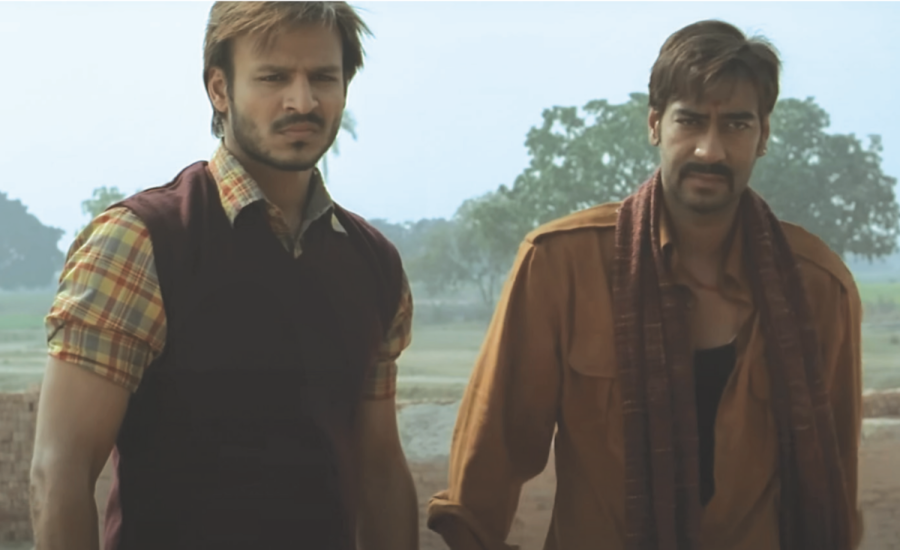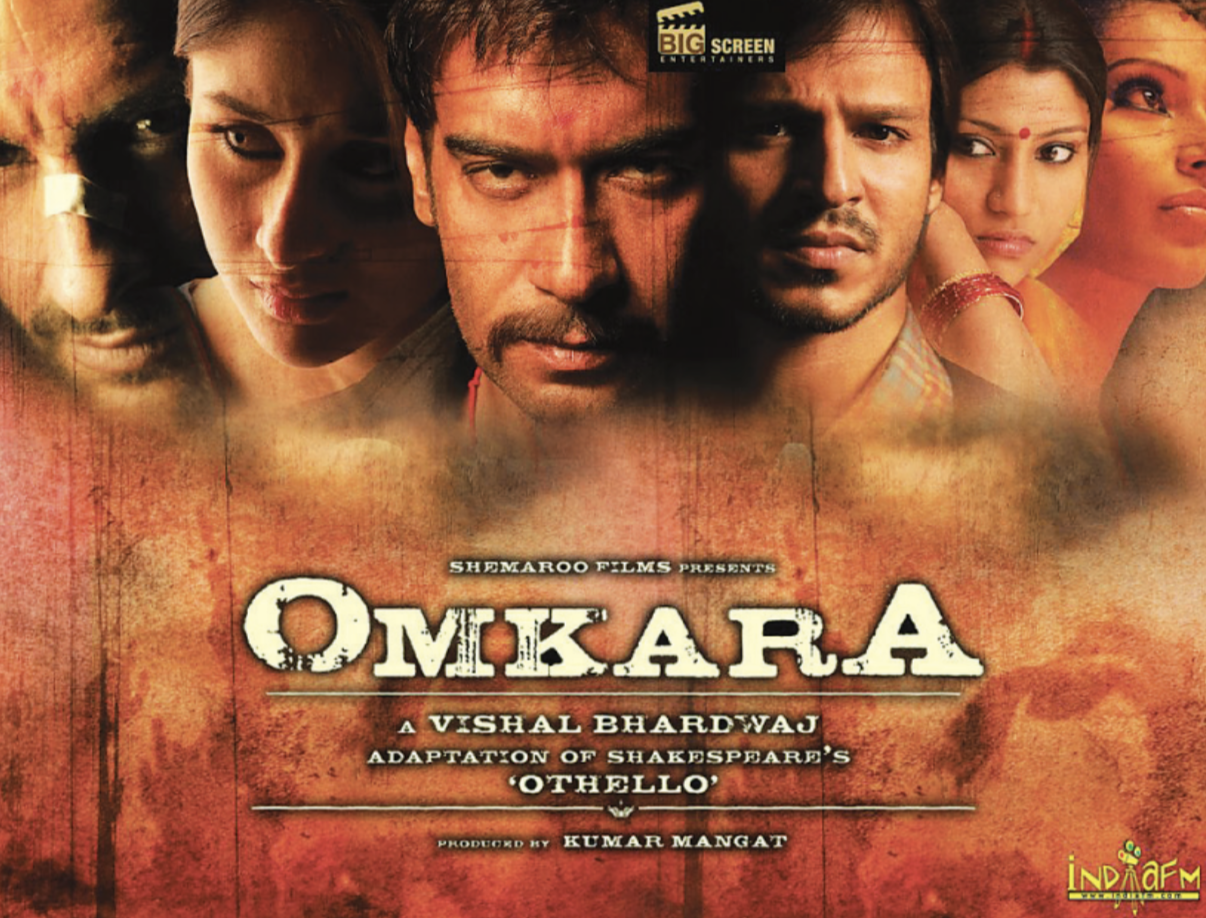Movies
Vishal Bhardwaj adapts Othello in caste light
Omkara fuses Bollywood masala and Shakespearean tragedy to form a timeless classic.
Kshitiz Pratap Shah
Shakespeare’s plays have had an important place in the history of subcontinental storytelling. On the one hand, Shakespeare is taken as the epitome of English literature—a symbol of everything sophisticated, aspirational, and foreign.
Everything about Shakespeare, from language to the quality of storytelling, is perceived as superior in our societies.
Many novels and plays have been written using Shakespearean frameworks to tell local stories. Romeo and Juliet have been used for centuries to represent forsaken love in the stark divides of many subcontinental communities.
Shakespearean characters like Romeo, Juliet, Macbeth, and Hamlet are extremely popular. Romeo is especially a common-place term for a rowdy lover. In short, Shakespeare has found a space among local storytellers.
One such example is Vishal Bhardwaj’s Omkara. This gangster drama is an adaptation of an entirely different kind of story—an epic, highly romanticised war drama in Shakespeare’s Othello.
The language of Omkara is a rougher dialect of Kharibori, filled with curses, while in Othello, even the Moor of Venice speaks high Venetian in the most courteous tongue.
Item numbers replace ballads, and corrupt politicians and policemen replace valiant fighters and gallant rulers. Yet, despite these differences, Shakespeare's notion of a gangster drama fits.
One reason is that Omkara captures the idea of purity in Othello and translates it to caste, a largely subcontinental notion. The story is focused on Omkara (Ajay Devgn), a half-Brahmin, half-lower caste gangster leader on the cusp of two drastic decisions.
The first is when Dolly (Kareena Kapoor), a distressed Brahmin girl, asks him to whisk her away from her wedding and marry her.
Next is when he decides his successor to be the educated gangster Kesu (Vivek Oberoi) instead of the loyal but limping Ishwar Langda Tyagi (Saif Ali Khan). Two wrong turns, and Omkara, despite his prominence, incurs the wrath of those who see him as inferior due to his caste.
Tyagi’s conspiracy makes him doubt the fidelity of the girl he loves and question the possibility of an intercaste marriage itself, leading to disastrous consequences.
Omkara discusses caste with a different lens than traditionally seen in Bollywood. Its protagonist is not someone strictly from the lower caste but instead from a mixed background, a half-Brahmin.
Throughout the film, he constantly has to prove his worth. His ability to lead, make decisive actions, and marry a Brahmin woman of his choice is consistently undermined. He cannot forget his lower-caste self in whatever he does.
And neither can Dolly, whose agency in choosing someone inferior as a husband, is always undermined because it is unimaginable in Omkara’s world for a woman to do so.
Omkara cannot shake off the idea that Dolly has tainted herself by marrying him.
Caste is an inherently misogynistic notion, and Dolly’s agency being seen as pollution throughout the story reflects that.
Yet, the biggest breakout star of the film definitely is Tyagi, a two-faced villain who cannot be read or judged as good or bad by anyone in the story, much less himself.
An orchestrator of the events that lead to death and destruction in the story, it is easy to blame Tyagi for all that happens; he is very much a mischievous Shakuni-like figure, whispering in Omkara’s ears and destroying lives.
Yet, he is also, at the same time, a mirror to the fallacies of everyone in the story. Tyagi is merely a catalyst; the thoughts of misdeed were always there.
With this career-changing performance, Saif portrays this duality incredibly and also highlights how Omkara is, in essence, a film about duality.
From a technical standpoint, Omkara also has a lot going for it. Bhardwaj, who started directing movies to give himself more opportunities to compose music, added a further layer to his compositions this time. The songs are memorable and enjoyable and add an ethereal quality to the fairly grounded setting.
My favourites were ‘Naina’, sung by Rahat Fateh Ali Khan, and the famous ‘Beedi’, enhanced by how their lyrics add more Easter eggs to the plot for a keen listener to catch.
The lighting is excellent, and apart from certain fight scenes and the conflict between the politicians, there is barely any moment that feels dry or out of place. In proper Bhardwaj style, the Bollywood masala mixed with the gravity of Shakespeare’s Othello makes for a truly enjoyable experience.
Lastly, but very importantly, why discuss Omkara in this day and age? The movie is 18 years old, and we are more used to seeing such stories in the present day. Yet, Omkara reminds us not to fall into the trap of boxing social matters and identity issues.
Caste, for example, can affect individuals in so many ways, as a stain, as a patriarchal chain in the wrists of women like Dolly, as a loophole to turn husband against wife, friend against friend, like Tyagi does throughout the movie.
It is a reminder that the caste system is not an issue limited within itself but one that rears its fingers into every inch of subcontinental society, and a lesson to be wary and vigilant of it constantly.
Omkara

Director: Vishal Bhardwaj
Released: 2006
Duration: 2 hours 32 minutes
Cast: Ajay Devgn, Saif Ali Khan, Kareena Kapoor, Vivek Oberoi
Language: Hindi
Available on: Amazon Prime




 22.64°C Kathmandu
22.64°C Kathmandu












